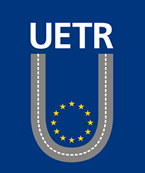18 Feb Brexit: border checks announced from 31 Dec- read UETR’s view on POLITICO
Full Article below:
Customs checks “will inevitably follow” the U.K.’s exit from EU rules at the end of 2020, Cabinet Office Minister Michael Gove told an event in central London on Monday, according to comments reported by POLITICO — confirming a new government narrative after previous insistence that trade with the bloc would remain frictionless.
“If we’re going down this road and we’re no longer part of the single market and the customs union, then it is obvious that we have to have customs formalities,” said Duncan Buchanan, policy director for U.K. road transport association RHA, echoing the reaction of many traders that such an outcome had been expected.
But Buchanan warned the government hadn’t yet grasped the full scale of the impact of shifting back to customs procedures on January 1.
“The idea that we can go from no customs procedures to 20 or 30 fields of data that need to be submitted for every shipment quickly and easily — it’s just not possible,” he said.
In a government statement later Monday, the U.K. promised the move would put the country in a stronger position as it forms new trading relationships, and stressed it would also help to ensure symmetry as the EU puts its own checks in place.
The government said it won’t be implementing the arrangements foreseen in case of a no-deal Brexit because businesses have enough time to prepare for incoming red tape — for instance by procuring an Economic Operator Registration and Identification (EORI) number needed for identification in customs procedures.
“[EORI numbers] are such a minute part of the problem that actually is to be almost irrelevant,” said Buchanan.
Reintroducing checks will cause hold-ups and supply shortages unless there is a “massive” upgrade in border facilities, including updated IT systems, truck holding facilities and trained staff, from day one — particularly for fresh food imports, British retail industry group RCA told the BBC on Tuesday.
“Customers are really going to see the problems on supermarket shelves unless we get that infrastructure,” stressed Andrew Opie, the organization’s director of food and sustainability.
Companies such as Airbus, which moves parts between the U.K. and its plants on the Continent dozens of times as part of its supply chain, have long warned of the negative consequences of post-Brexit customs checks. The company said it could end its operations in the U.K. if there is “severe disruption.“ Aircraft engine manufacturer Rolls-Royce has also warned of the consequences of border checks.
The additional paperwork requirements won’t just be visible at the borders, Buchanan said. “The queues will be hidden: They will be in the factories and the warehouses of the U.K. and Europe.”
The checks will also hit EU operators, with delays to just-in-time deliveries and higher levels of congestion as transporters near the U.K., said Marco Digioia, the secretary-general of UETR, a lobby group representing smaller trucking companies around the bloc. “What matters is that the [transport] flow isn’t interrupted.”
Traders will now be pinning their hopes on new technologies to ensure customs formalities are smooth, Digioia added. The U.K. government is counting on a “smart” border procedure to ease checks, but officials have signaledthat probably won’t be in place until 2025.
The RHA association wrote to the government following Monday’s event to express concern that officials haven’t committed to a deadline for outlining the procedures in more detail — “an absolutely critical and essential step,” Buchanan said.
Saim Saeed contributed reporting.





No Comments